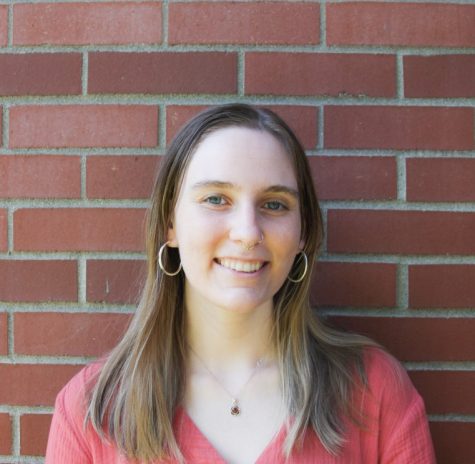SPU’s relationship with the Free Methodist Church
University faculty discuss the history and teachings of SPU and the Free Methodist Church
February 3, 2021

Since its inception in 1891 as Seattle Seminary, Seattle Pacific University has been tied to the Free Methodist Church.
According to Adrienne Meier, the university archivist, all of the founders of then Seattle Seminary were Protestant, but not all were Free Methodist.
“Even though Seattle Pacific has been a Free Methodist school since the beginning, from the very beginning, the people in charge came from a variety of protestant denominations. So it wasn’t 100 percent Free Methodist, even on the earliest board of trustees,” Meier said.
When the school needed more than just the size of a classroom in Peterson Hall, where chapel was held for students in the ‘70s, it utilized its long relationship with the First Free Methodist Church to get spaces for the services.
“What they ended up doing was having all of the students go to First Free Methodist Church, and they did chapel there. That was in the early ‘70s all the way until present time,” Meiers said.
The University’s relationship with the Free Methodist church is not just one of the past. In fact, Matthew Whitehead, who is one of the current Free Methodist Bishops, is also a former SPU Board of Trustees member.
Dr. Rob Wall, professor of scripture, explained that the Free Methodist Church under the Wesleyan tradition, was historically committed to the poor, was an anti-slavery movement, part of the women’s suffrage movement, and was the first denomination to ordain women to the Christian ministry.
“Those social and moral practices, which embody what it is that we believe about God and of God’s salvation, God’s grace, the Holy Spirit, the nature of God’s love, and how that love then gets embodied and practiced within the community of faith … that really is the hallmark of Free Methodism at its founding,” Dr. Wall said.
When asked about how students could get a deeper understanding of the beliefs within Free Methodism, Dr. Wall directed students to “Firebrandmag”, an online blog.
Dr. Wall said he believes that there is an unjust demonization of the Free Methodist denomination, but that the core teachings would lead many to the forefront of social movements.
“You would find Wesleyan Free Methodists on the frontlines of the MeToo Movement, Black Lives Matter, and social justice and liberation movements. That is just part of who we are,” Dr. Wall said. “That is how we understand the working of God’s grace as it gets worked out and embodied in a community of believers. It is part of following Jesus.”
Dr. Wall said that historically, Free Methodists are conservative when it comes to their belief on traditional family values. When asked about the church’s views on LGBTQ issues, he described a historical shift in society and culture on the views of family values and family life.
“Over the course of a century and half, that concept of family values has mutated into the kind of thing that we are now experiencing in the culture war over human sexuality,” Dr. Wall said.
He described that the antagonising of homosexuality was rooted in the Holy Code within the Old Testemant book of Leviticus, chapters 17-26. The Levitical Code prohibits homosexuality due to the inability to procreate.

(Caitlyn Schnider)
Dr. Wall went on to describe that the societal view of the very nature of a family is not just a production of societal institutions, but that the idea of families is very differently understood depending on one’s cultural environment.
He emphasized there is an effort among scholars of the Free Methodist Church to make a clear distinction that there is no personal choice among sexuality and sexual orientation and that the questions of sexual practice should be focused on whether it is covenant keeping and embodies the manner of which God’s love is shown.
In regard to the church’s stance on LGBTQ+ marriage and sexual intimacy, the Free Methodist Church “Book of Discipline” says, “Marriage, between one man and one woman, is therefore the only proper setting for sexual intimacy. Scripture requires purity before and faithfulness within and following marriage.”
The FMC “Book of Discipline” then states, “With deep compassion for persons who self-identify as lesbian, gay, bisexual and transgender, and especially those who have been mistreated and marginalized in various settings, the Free Methodist Church encourages its congregations to practice welcoming hospitality and embracing lovingkindness toward all who desire to worship among us.”
Rev. Lisa Ishihara, the university chaplain, described two primary categories within the Free Methodist teachings: acts of piety, how we practice our Christian faith, and acts of mercy, the ways we live out our faith doing justice and compassion.
“We might call them spiritual disciplines or spiritual rhythms. It could include individual ways like your own personal Bible study or personal prayer life, but it also encompasses our corporate life in the body of Christ or in the church together as well,” Ishihara said about acts of piety.
Ishihara explained that acts of piety includes talking to God together, but also times of listening to God. She emphasized that the ecumenism, or umbrella of being ecumenical, empowers our denominations to come together. At SPU, this is something she views as beautiful.
“The reality is there is nuance on our staff and faculty. We all don’t have the same convictions, we all don’t think the same way, we all go to different churches in different denominations, and I think that is the beautiful part about our faith,” Ishihara said. “For me, it is so important to have a staff and faculty that reflects the student body as much as possible.”
Chaplain Lisa Ishihara described acts of mercy as the ways in which Christians live out their faith.
“It’s how we are involved in social justice, it’s how we are going out and serving the poor. It’s more of our action and response to God’s call for us to love justice, do mercy, and walk humbly with your God in the context of community,” Ishihara said.
As the discussion about faith, the church, and what it means to be Free Methodist or Christian continues, Chaplain Ishihara encourages students to engage in conversations with her, the UMin staff and the students in leadership, who come from all different backgrounds in University Ministries.


























































































